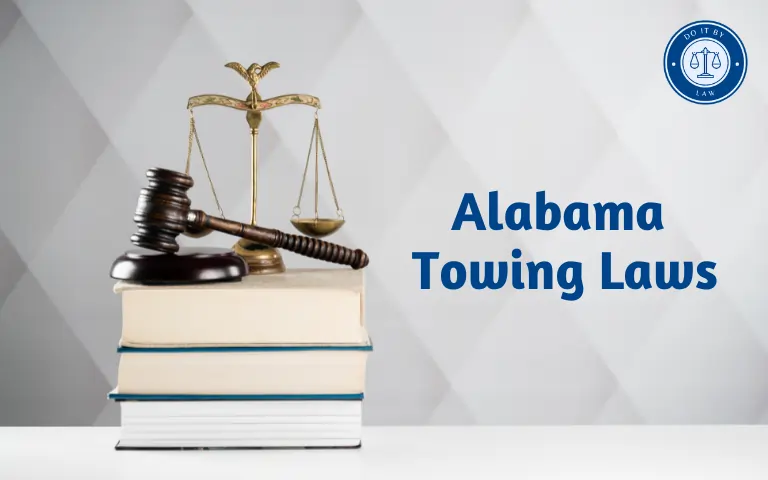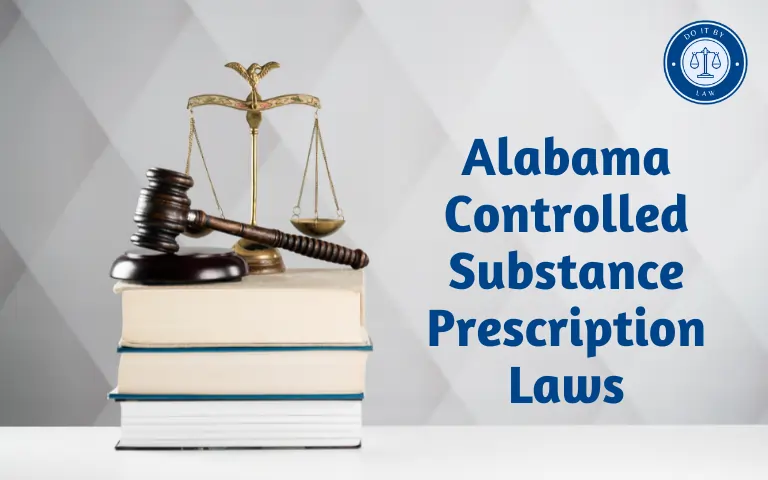Alabama Tattoo Law: Legal Age, Licensing & Rules (2025)
Are you wondering, “Can a 14 year old get a tattoo with parental consent in Alabama?” or curious about the legal age for tattoos in Alabama? Navigating Alabama tattoo laws can be confusing, whether you’re planning to get inked, exploring cosmetic tattooing in Alabama, or aspiring to become a permanent makeup artist in Alabama.
From tattoo license requirements to Alabama piercing laws, the state has strict regulations to ensure safety and compliance. Mistakes, like tattooing without a license, can even lead to legal consequences, such as fines or jail time.
Our comprehensive guide breaks down tattoo laws in Alabama, including age restrictions, parental consent rules, and licensing for tattoo shops in Phenix City, AL, and beyond.
Ready to make informed decisions about your next tattoo or piercing? Know more about Alabama state tattoo regulations and how they impact you!
What is the Legal Age for Tattoos in Alabama?
In Alabama, the legal age for tattoos is clearly defined under state regulations to ensure safety and compliance. If you’re wondering, “What age can you get a tattoo in Alabama?” the answer depends on parental consent.
Individuals aged 19 and older can get a tattoo without parental consent. For those younger, the tattoo age in Alabama allows individuals as young as 16 to get a tattoo, but only with explicit parental consent. This consent must be provided in person at a licensed tattoo facility, ensuring the process is transparent and regulated.
A common question is, “Can a 14 year old get a tattoo with parental consent in Alabama?” The answer is no. The minimum age for getting a tattoo, even with parental consent, is 16. Tattoo shops are strict about enforcing these laws to avoid legal penalties.
For clarity, here’s a breakdown:
- 19: Legal age to get a tattoo without parental consent.
- 16: Minimum age to get a tattoo with parental consent.
- Under 16: Tattoos are not permitted, even with consent.
🚩 Download: Free “Alabama Tattoo Age & Consent Checklist” for a quick reference on what’s legal (and what’s not) before you book your appointment!
Alabama Tattoo License Requirements and Regulations
Navigating the tattoo license Alabama process is essential for aspiring artists to operate legally and safely. According to Alabama Code § 22-17-1 and regulations under the Alabama Department of Public Health (ADPH), tattoo artists must obtain a license to practice. The licensing process involves:
- Training and Apprenticeship: Complete a state-approved training program or apprenticeship under a licensed tattoo artist, covering sanitation, sterilization, and technique.
- Health and Safety Certification: Obtain certification in bloodborne pathogens and infection control, as mandated by ADPH Rule 420-3-22.
- Application Submission: Submit an application to the ADPH, including proof of training, certifications, and a fee (typically $100-$200, subject to change).
- Facility Inspection: Work in a licensed tattoo parlor that complies with Alabama Code § 22-17-2, ensuring proper equipment sterilization and hygiene standards.
- Renewal: Licenses must be renewed annually, with ongoing compliance checks.
Consequences of Tattooing Without a License
Is it illegal to tattoo someone without a license in Alabama? Yes, it is explicitly prohibited under Alabama Code § 22-17-3. Tattooing without a license is classified as a misdemeanor, punishable by fines up to $500, potential jail time of up to 6 months, or both.
The question, “Can you go to jail for tattooing without a license?” is answered clearly: Yes, especially for repeat offenses or if the unlicensed activity results in health violations, such as infections due to improper sanitation.
Courts may also impose additional penalties, including cease-and-desist orders or bans from future licensing.
Why Licensing Matters ?
A valid Alabama tattoo licensing ensures you operate legally, build client trust, and avoid penalties (e.g., fines up to $500 for unlicensed tattooing). Licensed artists also gain access to professional networks and higher-paying opportunities.
Costs and Renewal Process (Updated for 2025)
- Initial Application Fee: Approximately $250 (varies by county; confirm with the Alabama Department of Public Health).
- Training Costs: Apprenticeships may range from $1,000-$5,000, depending on the program. Bloodborne Pathogens and CPR certifications cost $50-$150 combined.
- Renewal Fee: $150 annually, due by December 31. Submit proof of continued education (e.g., updated health certifications).
- Studio Inspection Fee: $100-$200 for new studios or non-compliant shops (if applicable).
Renewal Tips:
- Renew early to avoid lapses in licensing.
- Stay updated on Alabama tattoo regulations to ensure compliance during inspections.
Ready to take the first step? Contact a licensed training program today! Know more.
Steps to Obtain a License via the Alabama Department of Public Health
Follow these steps to secure your Alabama tattoo licensing in 2025:
- Complete Training: Finish an apprenticeship or formal training program. Document your hours and portfolio for submission.
- Obtain Certifications: Complete Bloodborne Pathogens and CPR training through accredited providers (e.g., Red Cross or online OSHA-approved courses).
- Apply for a License: Submit an application to the Alabama Department of Public Health’s Body Art Program. Include:
- Proof of training and certifications.
- Background check results.
- Application fee (see costs below).
- Pass Inspection: If operating a studio, ensure it meets tattoo shop rules Alabama for sanitation and equipment.
- Receive License: Upon approval, you’ll receive your license, valid for one year.
Visit the Alabama Department of Public Health for application details.
Key Tattoo Shop Rules in Alabama
Getting a tattoo is an exciting experience, but ensuring the shop you choose follows tattoo shop rules Alabama is critical for your safety and satisfaction.
Whether you’re a first-timer or a seasoned ink enthusiast, understanding Alabama’s strict regulations on sanitation, equipment, and inspections can help you make informed decisions.
This guide breaks down the key Alabama tattoo regulations, offers consumer tips for choosing a compliant shop, and highlights red flags to avoid. Ready to find a safe, legal studio?
| Category | Requirement | Compliance Check |
|---|---|---|
| Sanitation | Autoclave sterilization, single-use items, disinfected workstations | Inspection of sterilization logs |
| Equipment | Pre-sterilized needles, reputable ink, maintained machines | Visual inspection of tools and supplies |
| Inspections | Annual and unannounced health department visits, record-keeping | Review of records and facility condition |
1. Sanitation Standards
Sanitation is the cornerstone of safe tattooing to prevent infections and ensure client safety.
- Sterilization Protocols:
- All reusable equipment (e.g., needle bars) must be sterilized using an autoclave.
- Single-use items (e.g., needles, gloves) must be disposed of after each client.
- Clean Workspace:
- Workstations must be disinfected between clients using EPA-approved disinfectants.
- Floors and surfaces must be non-porous and cleaned daily.
- Personal Hygiene:
- Artists must wash hands and wear disposable gloves during procedures.
- Face masks are required during tattooing to prevent contamination.
2. Equipment Standards
Tattoo shops must use high-quality, compliant equipment to meet Alabama tattoo regulations.
- Needles and Ink:
- Only single-use, pre-sterilized needles are permitted.
- Tattoo ink must be from reputable suppliers and free of contaminants.
- Machines and Tools:
- Tattoo machines must be cleaned and maintained regularly.
- Non-disposable tools (e.g., grips) must be autoclaved after each use.
- Safety Gear:
- Shops must provide sharps containers for needle disposal.
- First aid kits must be available for emergencies.
3. Inspections and Compliance
Regular inspections ensure shops adhere to legal tattoos in Alabama standards.
- Annual Inspections:
- Conducted by the Alabama Department of Public Health.
- Checks sanitation, equipment, and licensing records.
- Unannounced Visits:
- Health officials may perform surprise inspections to verify compliance.
- Non-compliant shops face fines ($200-$500) or license revocation.
- Record-Keeping:
- Shops must maintain client consent forms and sterilization logs for at least 3 years.
- Artists’ Alabama tattoo licensing records must be displayed publicly.
Want to ensure your tattoo experience is safe? Download our Tattoo Safety Checklist.
Consumer Tips: How to Choose a Compliant Shop
Choosing a shop that follows tattoo shop rules Alabama ensures a safe and professional experience. Here’s how to pick the right one:
- Verify Licensing:
- Confirm the shop and artists hold valid Alabama tattoo licensing (check with the Alabama Department of Public Health).
- Look for displayed licenses in the studio.
- Check Reviews and Portfolios:
- Read online reviews on platforms like Yelp or Google for customer feedback.
- Review the artists’ portfolios to ensure their style matches your vision.
- Visit the Shop:
- Observe cleanliness, organization, and staff professionalism.
- Ask about sterilization processes and equipment standards.
- Ask Questions:
- Inquire about their compliance with Alabama tattoo regulations.
- Request details on aftercare and safety protocols.
A reputable shop will proudly share their credentials and processes. Know more about finding a trusted studio.
Red Flags to Avoid
Steer clear of shops or artists that raise these warning signs to protect your health and avoid legal issues:
| Aspect | Red Flag | Green Flag |
|---|---|---|
| Licensing | No visible licenses | Displayed Alabama tattoo licensing |
| Cleanliness | Dirty workstations, no gloves | Spotless studio, single-use tools |
| Paperwork | No consent forms | Signed forms and clear aftercare advice |
| Pricing | Suspiciously cheap | Transparent, competitive rates |
- Unlicensed Artists:
- Artists without valid Alabama tattoo licensing risk fines and unsafe practices.
- Always verify credentials before booking.
- Poor Hygiene:
- Dirty workstations, reused needles, or lack of gloves indicate non-compliance.
- Leave if the shop feels unclean or unprofessional.
- No Consent Forms:
- Reputable shops require signed consent forms to comply with legal tattoos in Alabama.
- Absence of paperwork is a major red flag.
- Unrealistic Pricing:
- Extremely low prices may signal corner-cutting on safety or quality.
- Compare rates with licensed shops for fair pricing.
Stay safe with our Tattoo Safety Checklist to evaluate shops before you ink.
Legal Tattoos in Alabama: Staying Compliant in 2025
Alabama enforces specific rules to regulate legal tattoos in Alabama, ensuring public safety and professionalism in the tattoo industry. The Alabama Department of Public Health sets clear guidelines on permissible designs and placements. Below are the key restrictions for 2025:
| Category | Restriction | Reason |
|---|---|---|
| Design | No obscene, gang-related, or misleading content | Public decency, safety |
| Placement | Limited on face, neck, hands; none near wounds | Professionalism, health risks |
| Eligibility | Minimum age 19, health disclosure required | Client safety, legal compliance |
1. Design Restrictions
Certain tattoo designs are prohibited to maintain public decency and safety:
- Obscene or Offensive Content:
- Tattoos depicting explicit sexual content, hate speech, or graphic violence are banned.
- Example: Symbols promoting discrimination or illegal activities are not permitted.
- Gang-Related Symbols:
- Designs associated with known criminal organizations may be restricted, especially in visible areas.
- Misleading Markings:
- Tattoos mimicking official identification (e.g., law enforcement badges) are prohibited.
2. Placement Restrictions
The location of a tattoo on the body is regulated to protect clients and public perception:
- Face and Neck:
- Tattoos on the face or neck may be restricted for minors or in professional settings, though not explicitly banned.
- Shops may refuse visible placements for clients under 19 without written justification.
- Hands and Fingers:
- Some studios limit hand or finger tattoos due to fading risks and professional concerns.
- Health-Sensitive Areas:
- Tattoos near open wounds, infections, or medical implants are prohibited to prevent health risks.
3. Client Eligibility
- Age Restrictions:
- Clients must be at least 19, with no exceptions for parental consent or emanc 없습니다.
- Proof of age (e.g., driver’s license) is mandatory.
- Health Requirements:
- Clients must disclose medical conditions (e.g., diabetes, allergies) to ensure safe tattooing.
Ensure your tattoo lasts with our Tattoo Aftercare Guide.
Penalties for Non-Compliance
Non-compliance with Alabama tattoo laws can lead to serious consequences for both artists and clients. The Alabama Department of Public Health enforces strict penalties to uphold tattoo shop rules Alabama and protect public health.
| Party | Violation | Penalty |
|---|---|---|
| Artists | Unlicensed tattooing | $500 fine, license suspension |
| Artists | Illegal designs/placements | $200-$300 fine, retraining |
| Clients | Underage tattooing | Legal warnings, parental liability |
| Clients | Falsifying ID/health info | Shop bans, civil liability |
For Artists
- Unlicensed Tattooing:
- Fine: Up to $500 per incident.
- License suspension or revocation for repeated violations.
- Violating Design/Placement Rules:
- Fine: $200-$300 per violation.
- Mandatory retraining on Alabama tattoo regulations.
- Sanitation Failures:
- Fine: $300-$500, plus temporary shop closure until compliance is restored.
- Criminal charges for gross negligence causing harm (e.g., infections).
For Clients
- Underage Tattooing:
- Clients under 19 attempting to get tattoos may face legal warnings.
- Parents may be liable if facilitating illegal tattooing.
- Falsifying Information:
- Providing fake ID or health information can result in bans from licensed shops.
- Potential civil liability if complications arise.
- Non-Compliant Designs:
- Clients requesting illegal designs may be refused service and reported to authorities.
Tip: Always verify your artist’s Alabama tattoo licensing to avoid penalties. Know more.
Updates from 2025 Regulations
The Alabama Department of Public Health introduced several updates to Alabama tattoo laws in 2025 to enhance safety and compliance:
- Stricter Age Verification:
- Shops must now use digital ID scanners to confirm clients are 19 or older.
- Penalties for underage tattooing increased to deter violations.
- Expanded Design Oversight:
- New guidelines clarify “obscene” content, with a focus on hate symbols.
- Artists must document client consultations for visible tattoos (e.g., face, neck).
- Enhanced Inspection Protocols:
- Unannounced inspections now include client record audits to ensure consent and health disclosures.
- Shops must maintain digital sterilization logs for faster compliance checks.
- Health Certification Renewal:
- Artists must renew Bloodborne Pathogens training every 2 years (previously 3 years).
Interlink: Stay safe post-tattoo with our Tattoo Aftercare Guide for compliant healing practices.
Ready for a legal, safe tattoo? Contact a licensed Alabama studio now! Ensure your tattoo is legal.
Cosmetic Tattooing in Alabama: What You Need to Know
Cosmetic tattooing in Alabama, often referred to as permanent makeup, includes procedures like microblading, eyeliner tattoos, lip blushing, and other forms of semi-permanent enhancements.
Governed by the Alabama Department of Public Health (ADPH) under Alabama Code § 22-17-1, cosmetic tattooing is subject to strict regulations to ensure safety and professionalism.
If you’re considering a career as a cosmetic tattoo artist in Alabama or seeking these services, here’s what you need to know.
Licensing for Cosmetic Tattoo Artists in Alabama
To practice cosmetic tattooing in Alabama, artists must obtain a tattoo license through the ADPH, similar to traditional tattoo artists. The process includes:
- Specialized Training: Complete a certified program in cosmetic tattooing, covering techniques like microblading and infection control, often requiring 100+ hours of training.
- Bloodborne Pathogen Certification: Obtain certification to meet ADPH Rule 420-3-22 standards for health and safety.
- Application and Fees: Submit an application to the ADPH with proof of training, certifications, and a licensing fee (approximately $100-$200).
- Facility Compliance: Work in a licensed facility that adheres to Alabama Code § 22-17-2, ensuring proper sterilization and hygiene.
TIP: When selecting a permanent makeup artist in Alabama, verify their license and portfolio. Licensed artists follow ADPH guidelines, reducing risks like infections or poor results. Popular services include eyebrow microblading, lip tinting, and scar camouflage.
Interlink: Curious about broader regulations? Explore Alabama tattoo laws here.
Alabama Piercing Laws and Related Regulations
Alabama piercing laws are regulated by the Alabama Department of Public Health (ADPH) under Alabama Code § 22-17-1 and ADPH Rule 420-3-22 to ensure safe and hygienic practices.
These laws cover age restrictions, consent requirements, and professional standards for body piercing, protecting both clients and practitioners.
Whether you’re seeking a piercing or exploring a career as a piercer, understanding these regulations is essential.
Alabama Piercing Laws: Age Restrictions and Consent
- Age Restrictions: In Alabama, the minimum age for body piercing is 16 with parental consent, as outlined in Alabama Code § 22-17-3. Individuals aged 19 and older can get pierced without consent. Those under 16 are not permitted to receive piercings, even with parental approval.
- Parental Consent: For minors aged 16-18, a parent or legal guardian must provide written consent in person at a licensed facility. The consent process requires identification verification to ensure compliance.
- Prohibited Areas: Certain piercings, such as genital or nipple piercings, are restricted for minors, regardless of consent, due to health and ethical considerations.
Licensed piercing studios must adhere to these rules and maintain records of consent to avoid penalties.
How to Become a Piercer in Alabama
Aspiring to become a professional piercer in Alabama requires meeting strict training and certification standards set by the ADPH. The process includes:
- Training and Apprenticeship: Complete a formal apprenticeship under a licensed piercer, typically lasting 6-12 months. Training covers piercing techniques, anatomy, and sterilization protocols.
- Bloodborne Pathogen Certification: Obtain certification in bloodborne pathogens and infection control, as required by ADPH Rule 420-3-22, to ensure safe practices.
- Health and Safety Compliance: Learn ADPH sanitation standards, including proper use of autoclaves and single-use needles, as mandated by Alabama Code § 22-17-2.
- Licensing: Submit an application to the ADPH with proof of training, certification, and a fee (approximately $100-$200). Work in a licensed facility that passes health inspections.
- Ongoing Education: Renew licenses annually and stay updated on regulations to maintain compliance.
Unlicensed piercing is illegal and considered a misdemeanor, punishable by fines up to $500 or up to 6 months in jail, per Alabama Code § 22-17-3.
CTA: Ready to start your piercing journey? Contact a licensed piercing studio in Alabama for safe, professional services!
Controversies and Challenges Around Alabama Tattoo Laws in 2025
Alabama tattoo laws are designed to ensure safety and professionalism, but they’ve sparked debates and challenges among clients, artists, and regulators.
From strict age restrictions to enforcement issues, these regulations create controversies that impact the tattoo industry and its consumers.
The following controversies fuel debates around Alabama tattoo laws, reflecting tensions between personal freedom, public safety, and industry standards in 2025:
| Issue | Controversy | Stakeholders Affected |
|---|---|---|
| Age Restrictions | 19+ rule limits autonomy vs. protects youth | Clients, parents |
| Design Restrictions | Vague bans on “obscene” content | Artists, clients |
| Licensing Costs | High fees and training barriers | Aspiring artists, rural residents |
| Cultural Freedom | Limits on visible tattoos stifle expression | Artists, cultural communities |
| Permanent Makeup | Overregulation as tattooing | Cosmetic artists, clients |
- Strict Age Restrictions:
- Alabama’s minimum tattooing age of 19, with no parental consent exceptions, is among the strictest in the U.S.
- Critics argue it limits personal autonomy for 18-year-olds, who can vote, marry, or join the military but cannot get tattoos.
- Supporters claim the rule protects young adults from impulsive decisions with lifelong consequences.
- Alabama’s minimum tattooing age of 19, with no parental consent exceptions, is among the strictest in the U.S.
- Design and Placement Restrictions:
- Bans on “obscene” or gang-related designs are vague, leading to inconsistent enforcement across studios.
- Artists face challenges interpreting what constitutes “offensive” content, risking fines or license suspension.
- Clients feel restricted in expressing personal or cultural identities through tattoos.
- Bans on “obscene” or gang-related designs are vague, leading to inconsistent enforcement across studios.
- High Licensing Costs and Training Barriers:
- Alabama tattoo licensing requires costly training programs ($1,000-$5,000) and annual renewal fees ($150), which deter aspiring artists, especially from low-income backgrounds.
- Limited access to accredited training programs in rural Alabama creates geographic disparities.
- Alabama tattoo licensing requires costly training programs ($1,000-$5,000) and annual renewal fees ($150), which deter aspiring artists, especially from low-income backgrounds.
- Cultural and Artistic Freedom:
- Some artists argue that restrictions on visible tattoos (e.g., face, neck) stifle creativity and cultural expression, particularly for communities where such tattoos hold traditional significance.
- Clients face studio refusals for visible placements, citing professional or social stigma concerns.
- Some artists argue that restrictions on visible tattoos (e.g., face, neck) stifle creativity and cultural expression, particularly for communities where such tattoos hold traditional significance.
- Permanent Makeup Regulations:
- Permanent makeup (e.g., microblading) falls under the same strict Alabama permanent makeup laws as traditional tattooing, despite its cosmetic focus.
- Critics argue this overregulation burdens artists with unnecessary training and costs, driving some to operate illegally.
- Permanent makeup (e.g., microblading) falls under the same strict Alabama permanent makeup laws as traditional tattooing, despite its cosmetic focus.
Interlink: Learn how to care for your tattoo legally with our Tattoo Aftercare Guide.
Challenges in Compliance and Enforcement
Implementing Alabama tattoo regulations presents significant challenges for artists, studios, and regulators, contributing to ongoing controversies:
| Challenge | Description | Impact |
|---|---|---|
| Inconsistent Enforcement | Varying inspection rigor by county | Unequal standards, rural leniency |
| Underground Tattooing | Unlicensed artists bypass regulations | Health risks, legal penalties |
| Client Awareness | Lack of education on laws | Non-compliance, disputes |
| Technological Compliance | Costly digital ID and logging requirements | Financial strain, rural challenges |
| Permanent Makeup | Misaligned regulations for cosmetic procedures | Unregulated services, confusion |
- Inconsistent Enforcement:
- County-level variations in inspection rigor lead to unequal compliance standards. Urban areas like Birmingham face stricter oversight than rural counties.
- Unannounced inspections are resource-intensive, limiting their frequency in remote areas.
- Underground Tattooing:
- High licensing costs and strict rules push some artists to operate illegally, offering cheaper services without adhering to tattoo shop rules Alabama.
- Clients risk infections or legal issues when patronizing unlicensed artists, undermining public health goals.
- Client Awareness:
- Many clients are unaware of tattoo age laws Alabama or design restrictions, leading to disputes with studios or attempts to bypass regulations.
- Lack of public education campaigns leaves consumers vulnerable to non-compliant shops.
- Technological Compliance:
- 2025 updates requiring digital ID scanners and sterilization logs increase costs for studios, particularly small businesses.
- Rural studios struggle with unreliable internet access for digital record-keeping, risking penalties.
- Permanent Makeup Oversight:
- Regulating permanent makeup under traditional tattoo laws creates confusion, as cosmetic procedures differ in technique and risk.
- Some artists avoid licensing due to perceived irrelevance, increasing unregulated microblading services.
Interlink: Stay safe by choosing compliant studios with our Tattoo Safety Checklist.
CTA: Ready for a safe, legal tattoo? Contact a licensed studio now! Ensure your tattoo is legal.
Frequently Asked Questions
Conclusion: Mastering Alabama Tattoo Laws for a Safe and Legal Experience
Navigating Alabama tattoo laws in 2025 is essential for anyone looking to get inked or pursue a career in tattooing. From strict tattoo age laws Alabama requiring a minimum age of 19 to rigorous Alabama tattoo licensing standards for artists, these regulations ensure safety, professionalism, and compliance.
Understanding tattoo shop rules Alabama, design restrictions, and Alabama permanent makeup laws empowers clients to choose reputable studios and avoid penalties. Despite controversies around age limits and enforcement challenges, staying informed about legal tattoos in Alabama guarantees a rewarding experience.
Whether you’re a client seeking a flawless tattoo or an artist aiming to thrive, compliance with Alabama tattoo regulations is your key to success. Take the first step today—connect with a licensed studio and ensure your tattoo journey is safe, legal, and unforgettable! Know more and book your consultation now!
Interlink: Maximize your tattoo’s longevity with our Tattoo Aftercare Guide.
CTA: Ready for a compliant, high-quality tattoo? Contact a trusted Alabama studio today! Ensure your tattoo is legal.







